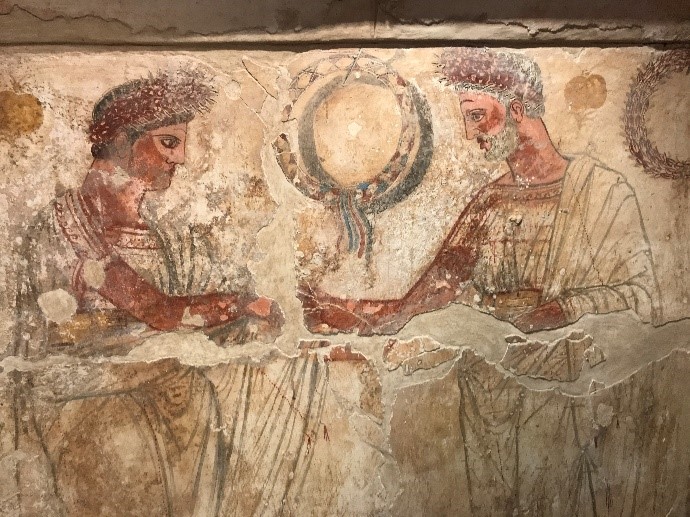Students in the Department of Classical & Archaeological Studies at Kent were thrilled last month by a four-day trip to the Greek and Roman ruins of Campania and Rome. Undergraduates in Ancient History and Classical & Archaeological Studies, led by Dr Luke Lavan, and postgraduates on the MA in Ancient History and Archaeology at the University’s Rome School of Classical and Renaissance Studies, who are in Rome throughout the Spring term under the direction of Dr Christopher Burden-Strevens, were introduced to some of the best that Roman Italy has to offer.
Luke Lavan is an expert in the archaeology of Roman Italy and, as the Director of the Centre for Late Antique Archaeology, has run excavations at Ostia, the most important harbour city of ancient Rome, as well as other sites in Italy. Christopher Burden-Strevens is a specialist in the history and history-writing of the Roman Republic. Uniting these two approaches – archaeology and ancient history – students had an action-packed four days exploring sites both famous and unfamiliar, some of which are normally closed to the public.
The week started with Pompeii, an exceptionally well-preserved settlement whose origins go back to the Greek colonisation of the southern Italian coast in the Archaic Era, then travelled to Paestum. Students ended their rich and full week with an excursion to Ostia, Rome’s ancient port at the mouth of the Tiber, followed by a visit to the ancient heart of the Roman Empire itself: the Roman Forum. where Christopher Burden-Strevens met with MA students from Kent’s Paris School of Arts and Culture to talk them through the history of the Forum as a political space.
Christopher Burden-Strevens said: “four days of constant activity in Campania and Rome is only possible thanks to the enthusiasm and thirst for knowledge of Kent’s undergraduates in Ancient History and Classical & Archaeological Studies and our postgraduates in Ancient History and Archaeology in the city of Rome, and the dedication of the academics who teach them. To teach the history of Roman – and indeed pre-Roman – Italy in the lecture theatre is a pleasure. But to teach it on-site for days on end, in the company of students who have such passion for their subject that they give themselves over to Rome for almost a week—that’s really a privilege. It was an absolutely fantastic four days, and I can’t wait for next year”.

